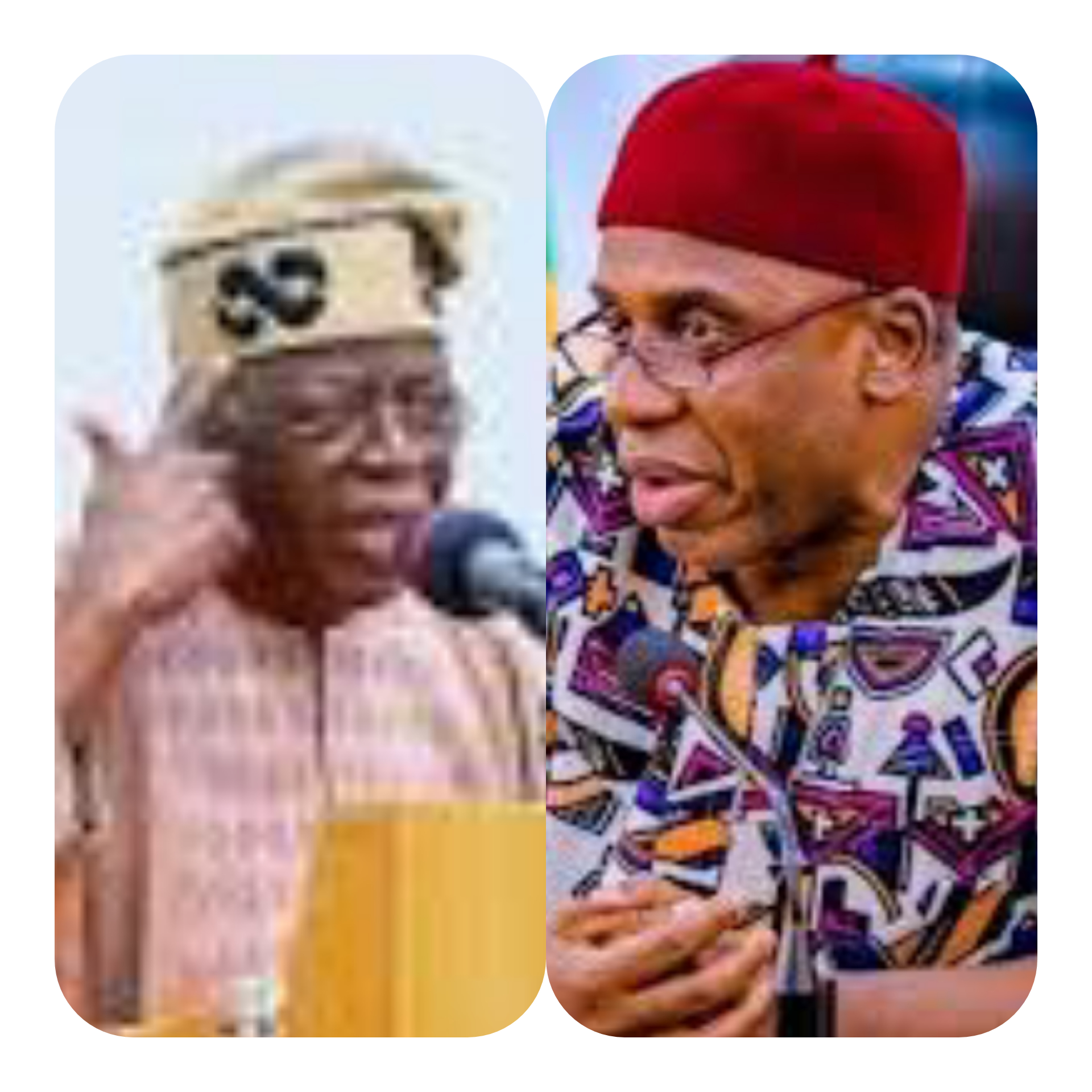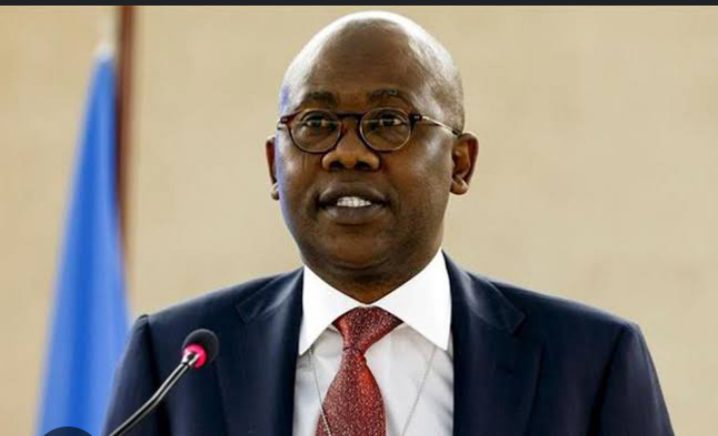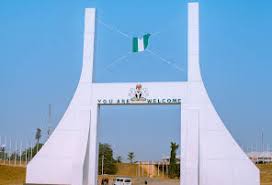By Ehichioya Ezomon
Monday, January 13, 2025, is a day of reckoning for the Peoples Democratic Party (PDP), and its candidate in the September 21, 2024, governorship election in Edo State, Dr Asue Ighodalo. On that date, the party is expected to begin the process of proving that Ighodalo, and not Senator Monday Okpebholo of the All Progressives Congress (APC), won the poll.
The PDP’s made all the claims, leveled all the allegations, and may’ve successfully pled its petition before the court of public opinion. But it’s no longer time for rhethoric, as reality has set in at the Edo Governorship Election Petitions Tribunal holding in Benin City, where the party must replace claims with facts, allegations with evidence, emotions with reasoning, and equivocation with clarity.
The PDP will open the legal fireworks to convince the three-member tribunal – looking into separate petitions filed by the PDP and six other parties that participated in the election – that the APC, in collaboration with the Independent National Electoral Commission (INEC) and the Police, “stole” Ighodalo’s victory and handed it over to Okpebholo (APC, Edo Central).
The PDP had claimed – pre-declaration of results by the INEC on September 22, 2024 – that Ighodalo, a Lagos-based Lawyer and business tycoon, outrightly won the poll, but that the APC and the Police pressured the INEC Chairman, Prof. Mahmood Yakubu, and Edo State Resident Electoral Commissioner, Dr Anugbum Onuoha, to manipulate the collated figures in favour of Okpebholo.
The PDP also alleged that INEC’s approval of Okpebholo as winner of the election confirmed its charge that the party’s votes were suppressed in several councils, while those of the APC were inflated to give Okpebholo the edge over Ighodalo at the state collation centre in Benin City where the INEC made the final returns on the poll.
Going by INEC’s tally, Okpebholo won the ballot in 11 councils, scoring 291,667 votes, to defeat Ighodalo, who won in seven councils, and polled 247,274 votes to place second. With a margin of lead of 44,393 votes, the INEC declared Okpebholo as Governor-elect and his running mate, Hon. Dennis Idahosa (APC, Ovia Federal Constituency), as Deputy Governor-elect.
Prior to that declaration, Adamawa State Governor Umar Fintiri, who led a delegation of the PDP governors to monitor the election, called for INEC’s postponement of announcement of the results, for a review of the reported rigging by the APC.
The only reason INEC can’t declare a winner is if the election is inconclusive by virtue of none of the parties meeting the legal requirements for a decisive win, or the process was substantially flawed that the commission needs to review the outcome within seven days allowed by the electoral laws before taking a definitive action.
However, on September 27, iterating that the PDP won the poll – and it’d be proved in court – Ighodalo, in an interview on Channels TV’s ‘Politics Today’, as reported by Daily Trust, laid out his case, accusing the INEC and the police of robbing him of his “mandate.”
Ighodalo said: “There was a collusion between the INEC and the police to suppress the will of the people of Edo State. People of Edo State purposely voted for us (PDP). We won the election clearly… But we have serious collusion by INEC and the APC working towards votes not counting.
“But this time around, we will go through the judicial process and the vote will count. We are quite clear that with the evidence we have, we will show clearly that we won the election. And the mandate of the people will be upheld.”
Exonerating the PDP from vote-buying, Ighodalo added: “We were not involved in vote buying at all. APC agents came with minted notes straight from the CBN (Central Bank of Nigeria); they were offering N20,000, N30,000 and N50,000 per vote. Our guys went to them and told them, ‘you can’t come here to buy votes.'”
To “retrieve” their alleged “stolen mandate,” the PDP and Ighodalo need to prove – “beyond all reasonable doubts,” and “in substantial compliance” with the relevant electoral laws – their weighty allegations of disenfranchisement of voters; suppression of votes; over-voting; vote-buying; manipulation of the process; and connivance of the APC, the INEC and the Police to flip Ighodalo’s “victory” for Okpebholo.
Above all, the PDP and Ighodalo must show how they won the votes in each of the polling units, wards and councils in contention, and how the total votes they claim they scored are the authentic figures, and a true reflection of the votes Edo people cast on September 21, and not the figures that the INEC declared for the parties on September 22.
Certainly, the opportune moment begins on January 13 for the PDP and Ighodalo to adduce impeccable and impeachable evidence before the three-man panel of Justices Wilfred Kpochi A.B. Yusuf and A.A. Adewole, to prove the allegations contained in their petitions.
With the conclusion of pre-hearing formalities on Saturday, December 21, 2024, and the sitting for the hearing proper adjourned to January 13, the chairman of the tribunal, Justice Kpochi, has revealed that 290 witnesses are expected to testify for and against the outcome of the election that returned Okpebholo as Governor of Edo State.
Noting that the parties agreed to call a total of 290 witnesses, Justice Kpochi, as reported by Vanguard, said the adopted pre-hearing report outlined the timeframe for the examination of witnesses, with 40 minutes allocated for examination-in-chief for each star witness, 30 minutes for cross-examination by the petitioners, and 20 minutes for cross-examination by each respondent.
Other agreements include the allocation of 10 minutes for re-examination of each star witness and 25 minutes for examination-in-chief for other witnesses, with the petitioners expected to call their witnesses within 21 days or less, and the respondents have 10 days each to call their witnesses.
While the tribunal will sit daily from 10 a.m., except on Sundays and other public holidays gazetted by law, there shall be no consolidation of petitions, as there was no application in respect thereof, and no amendment of such shall be entertained during the proceedings.
According to Justice Kpochi, the parties agreed to call only witnesses whose statements on oath had been frontloaded (filed upfront to be issued at trial), and may call subpoenaed witnesses where necessary, adding that, “there shall be an interpreter for some witnesses from English to any native language like Benin, Esan, Auchi dialects and vice versa.”
Snippets of what to expect during the proceedings were on display on December 18 when counsel to the APC, Ferdinand Orbih (SAN), sought dismissal of the PDP and Ighodalo’s petition as “incompetent, and not filed in accordance with the extant law,” as reported by the News Agency of Nigeria (NAN).
Noting that further grounds for seeking the dismissal of the petition are contained in the motion paper dated November 30, and supported by a seven-paragraph affidavit, Orbih also prayed for expunging of some paragraphs of the petition, and urged the tribunal to rule on the motion before it commenced hearing into the petition, even as he asked the tribunal to hands-off the petition for lack of jurisdiction.
Countering the APC, Ken Mozia (SAN), one of the lead counsel for Ighodalo – who’d also moved four different motions, for the tribunal to expunge various paragraphs in the replies of INEC, APC and Okpebholo to PDP’s petition – urged the tribunal to discountenance the APC submission, as the PDP had filed a reply and counter-affidavit to challenge APC’s motion, which he sought its dismissal for lack of merit.
Justice Kpochi, however, discountenanced the arguments of the APC counsel, declaring that rulings on all preliminary motions would be delivered on the day of the final judgment.
Amid blackmail, intimidation and threats – and with “all eyes on the tribunal” to see if it’ll appropriately “dispense justice without fear or favour,” Justice Kpochi, following the December 9 pre-hearing, had asked all stakeholders, including political parties, parties in the suit, their supporters, counsel, security agencies, and the media to cooperate for a smooth and successful hearing.
He appealed to counsel to show utmost restraints, and not to engage in unnecessary arguments that could lead to shouting, and jeopardising the convenient atmosphere during the tribunal proceedings. “I am impressed by the conducive and calm environment I am seeing, and going forward, I will want this to continue,” Justice Kpochi said.
“I appeal to you all to let us put our eyes on the ball so that we can have serene proceedings. You have SANs (Senior Advocates of Nigeria) and very senior lawyers here, nobody is going to shout at you, (and) please don’t also shout at us. If there are areas you feel not comfortable about, please draw our attention to it.”
As Mozia (SAN) pledged the commitment of the counsel to the proceedings, “as long as other parties would do the same,” it’s hoped, too, that security operatives will check further incursions by armed thugs into the tribunal premises, injuring party supporters and lawyers, and overshadowing proceedings of the pre-hearings.
There must be a conducive environment – both inside and outside the tribunal – for the petitions to be heard and concluded within the timeframe of six months (180 days) mandated by the laws guiding elections in Nigeria. So, let the legal – and not the thuggery – fireworks begin!
Mr Ezomon, Journalist and Media Consultant, writes from Lagos, Nigeria. Can be reached on X, Threads, Facebook, Instagram and WhatsApp @EhichioyaEzomon. Tel: 08033078357._




